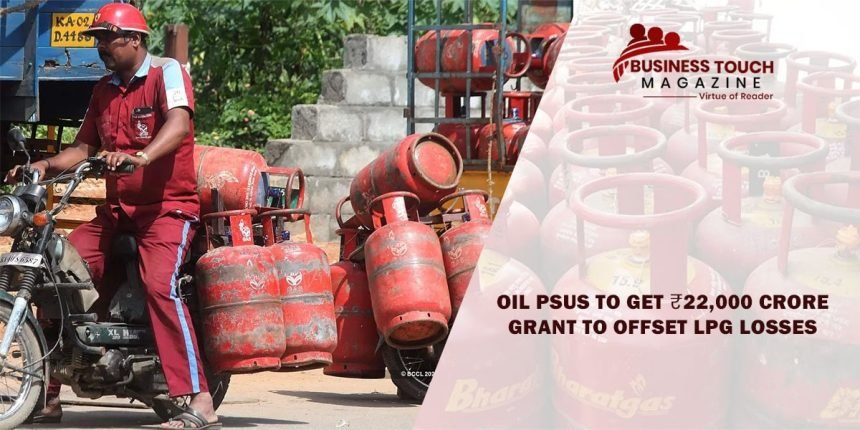On Wednesday, the Cabinet gave its approval for state-run oil marketing companies to receive a payment of 22,000 crore as compensation for the losses they incurred as a result of delivering cooking gas at prices that were lower than the market price.
According to an official release, the financing would be distributed among three businesses (Indian Oil, Bharat Petroleum, and Hindustan Petroleum) in order to ensure a “unhindered” supply of LPG for use in residential kitchens.
According to the statement, oil marketing companies suffered significant financial losses since LPG prices climbed by 300 percent abroad but by only 72 percent in the local market between June 2020 and June 2022. According to the research, local consumers of liquefied petroleum gas (LPG) were not charged the full amount of cost increases linked with imports of liquefied petroleum gas (LPG) “to insulate customers from fluctuations in worldwide LPG prices.”
After a significant amount of lag time, oil companies are now receiving the direct grant they are entitled to in order to assist them with the LPG sales losses they have incurred. For the last several years, the government has been providing consumers with financial assistance in the form of direct payments into their bank accounts. This was done in the hope that businesses would maintain their practice of selling cooking gas at prices comparable to those found in the market.
The subsidies were terminated at the beginning of 2020 as a result of the introduction of Covid-19, which brought to a decrease in the price of LPG on the worldwide market. Despite this, oil-related industries were severely impacted as world prices increased once again since there was no commensurate rise in local rates. This reward will be used toward the goal of compensating for such expenditures.
Although the oil sector sought a grant from the government in the amount of 44,000 crore, the government finally decided to only pay 20,000 crore in response.
Nod for Container terminal
A container port is going to be constructed in Gujarat’s Deendayal Port in Tuna-Tekra, and the Cabinet has given its approval to the proposal to do so via the use of public-private partnerships.
The expected cost of 4,243.64 crore would be the responsibility of the concessionaire, while the cost of 296.20 crore would be the responsibility of the concessioning body for common user facilities.
The concessionaire has the ability to make modifications to the port’s approach channel, berth pocket, and turning circle while the concession is in effect. These modifications will allow the port to accept boats with a draught of up to 18 metres.




